Explore the Best AI Image Gallery

AI-Generated Media: A New Frontier in Creativity and Ethics
The intersection of artificial intelligence (AI) and creative industries is rapidly evolving, giving rise to a new era of AI-generated media. This technology holds immense potential to revolutionize how we create, consume, and interact with content, but it also presents complex ethical challenges that require careful consideration.
The Creative Potential of AI-Generated Media
AI algorithms are increasingly capable of generating high-quality images, videos, music, and even text. This opens up a world of possibilities for artists, designers, and content creators:
- Democratization of Creativity: AI tools can empower individuals with limited technical skills to create professional-grade content, fostering greater inclusivity in the creative process.
- Enhanced Efficiency: AI can automate repetitive tasks, freeing up human creators to focus on more conceptual and innovative aspects of their work.
- Exploration of New Creative Frontiers: AI algorithms can generate novel ideas and concepts that might not be conceived by human minds, pushing the boundaries of artistic expression.
Potential Applications Across Industries
The impact of AI-generated media extends far beyond traditional art forms:
- Marketing and Advertising: Personalized content creation, dynamic ad campaigns, and immersive brand experiences.
- Entertainment: AI-powered storytelling, interactive games, and realistic virtual characters.
- Education: Engaging learning materials, personalized tutoring, and immersive simulations.
- Healthcare: AI-assisted medical imaging analysis, drug discovery, and patient education.
Ethical Considerations: Navigating the Complexities
While the potential benefits are undeniable, the rise of AI-generated media also raises significant ethical concerns:
- Copyright and Intellectual Property: Who owns the copyright to AI-generated content? How do we protect the rights of human creators when machines can produce similar works?
- Bias and Discrimination: AI algorithms are trained on vast datasets, which may contain inherent biases that perpetuate existing societal inequalities. It is crucial to ensure fairness and prevent the amplification of harmful stereotypes.
- Transparency and Accountability: The decision-making processes of AI systems can be complex and opaque. It is important to develop methods for understanding how AI generates content and to establish clear lines of responsibility.
- Misinformation and Deepfakes: AI-generated media can be used to create highly realistic fake content, posing a threat to truth and trust. Robust detection mechanisms and public awareness campaigns are essential to combat this.
Shaping the Future of AI-Generated Media
As AI technology continues to advance, it is vital that we engage in ongoing dialogue and collaboration to shape its ethical development and deployment:
- Multi-Stakeholder Collaboration: Bringing together experts from diverse fields—including technology, ethics, law, and the arts—to develop guidelines and best practices for AI-generated media.
- Education and Awareness: Raising public understanding of AI capabilities and limitations, as well as the potential benefits and risks associated with AI-generated content.
- Policy and Regulation: Developing appropriate legal frameworks to address copyright, intellectual property, and ethical concerns related to AI-generated media.
The emergence of AI-generated media represents a paradigm shift in the creative landscape. By embracing its potential while navigating its ethical complexities, we can harness this transformative technology to unlock new frontiers of creativity, innovation, and human expression.






](https://images.ai-img.art/thumbnails/150/f1cbba604c7411267acd95acaa4746a5ee006a25ade5e596a9501884b384e1dd.webp)

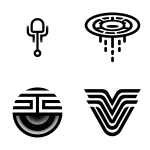


](https://images.ai-img.art/thumbnails/150/5b3fca49762c8c532ff70f250ca3b5900bac75be98d6c82f8f7a220465ad534a.webp)
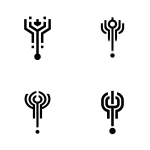

](https://images.ai-img.art/thumbnails/150/89d86a1c20e8844b6d4ce23cf0e6ae10c19923617b6be16cac5d3cc513bf9c4e.webp)

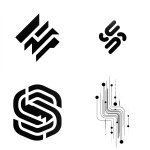
](https://images.ai-img.art/thumbnails/150/16ec42833d204af37c75cc776a794c54661cbfe1061c899680a4976a7f74cd51.webp)
](https://images.ai-img.art/thumbnails/150/c04f7210bb9d35279503ff64ad44a9826d6909838f777fb1edd0fdece2ac7c70.webp)
](https://images.ai-img.art/thumbnails/150/45d068cbdc39002eccc21e2169438a3c142426219fda8c9e027c536cdf66811e.webp)



](https://images.ai-img.art/thumbnails/150/9ad2f4d771346182f4c9b6d1712edfd0b6b776f37b75dac606a8e03b1bd2dc47.webp)

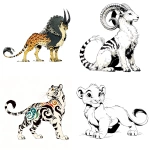

](https://images.ai-img.art/thumbnails/150/4d725f4d5380eb583bdebf0aad4c789acd6782398b4050f01f350a939dd4c2af.webp)
](https://images.ai-img.art/thumbnails/150/cc8f7b8338e849e1e11a902ac51eda96c8f710e5d829c5b4d57b56fa05d28e95.webp)

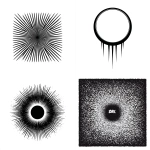
](https://images.ai-img.art/thumbnails/150/8884a7a8953b23d6c882f33524c10e09d320bbce4f305f2c7e79c402d82c1760.webp)


](https://images.ai-img.art/thumbnails/150/55e9c8ac48f7ca1311ec4a843e2616aa87c73e2217901ac138d198afb0b4f1db.webp)








](https://images.ai-img.art/thumbnails/150/f9928aee79da6b2028ac7a7129ac30e6475a85d5300661776fde267c2da839ab.webp)

](https://images.ai-img.art/thumbnails/150/78a1311461ccc4b60dd1430d56ee04b3b5612a3145aef0a32196168d5489fdf3.webp)
](https://images.ai-img.art/thumbnails/150/03de477e462377e62b34fea23ab1cbf6d4557f4077cc8bed9f23388af1200721.webp)
](https://images.ai-img.art/thumbnails/150/bbf691f1c69e4801062c68d0435463c5bf76258e3984fbe3cc25e9e46174cf88.webp)

